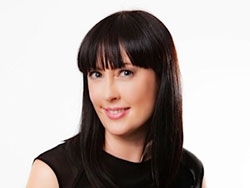The Queensland Nurses’ Union says the state government’s new double penalty laws will do little to deter violent offenders who are often not competent to stand trial.
The government has doubled the maximum sentence to 14 years in prison for people who assault nurses, paramedics and doctors.
Subscribe for FREE to the HealthTimes magazine
More than 24,500 health workers reported being a victim of violence at work in the past five financial years, with more than 2800 nurses - or 8.51 per cent of Queensland’s 33,000 nursing workforce - attacked in the workplace in 2013-14.
Health Minister Lawrence Springborg said thousands of nurses and paramedics are punched, stabbed, bitten and spat on every year in Queensland, with data showing much of the violence is fuelled by alcohol and drugs.
The government has launched a campaign as part of its Safe Night Out strategy, including
online advertising that features graphic images of injuries to nurses, paramedics and doctors.
QNU secretary Beth Mohle welcomed the tougher penalty for assaults against health workers but doubted the new laws would halt the increase in violence.
“We think it’s akin to putting an ambulance at the bottom of a cliff rather than having a fence at the top of it to stop people from falling over,” she said.
“Very few prosecutions for attacks on nurses and midwives and other health workers ever see it through the courts and have successful prosecutions - they are normally the more extreme of the cases that end up going through the courts.”
Ms Mohle said violent offenders range from drug and alcohol-affected patients right through to dementia patients and patients with other health and mental health conditions.
“Increasingly the people who are assaulting members are people who either have dementia or mental health issues and they are not competent to stand trial,” she said.
“The person who assaulted me when I was a nurse was an 80-odd year-old fellow who was adversely affected by an anaesthetic - he would be horrified that he’d lashed out and hurt someone.
“We’ve had cases in maternity units where there’s been apprehended violence orders against people, where the mother has gone in and given birth and the partner is turning up at the maternity unit demanding to see the newborn baby and perpetrating violence.
“It can happen anywhere - in geriatric facilities, in mental health wards, I don’t think that anywhere is immune from it and that’s the problem, it isn’t a simple problem to solve.
“If it was a simple problem to solve, it would have been solved by now.”
Ms Mohle said the union has written to the director-general of Queensland Health and the state’s auditor-general, calling for a systemic review into the increasing trend in violent assaults against nurses and midwives.
“We need to have a total review because we think each of the hospital and health services are dealing with these issues in a different way and there is no one consistent approach, even in relation to which cases they are going to prosecute,” she said.
“We need to have a coordinated and quite a sophisticated response because the nature of violence is really changing.
“It’s about having appropriate staffing, appropriate skill mix so appropriate training for staff to be able to de-escalate situations, and appropriate facility design as well, which can make a huge impact in terms of safety and security.”
Ms Mohle said violence against health workers should never be normalised.
“Any violence towards health workers is totally unacceptable and there should be zero tolerance towards that violence,” she said.
“We don’t want it to ever be seen as part of the job.”













